Related Research Articles

The Taiwan Solidarity Union (TSU) is a political party in Taiwan which advocates Taiwan independence, and is affiliated with the Taiwanese localization movement. It was officially founded on 12 August 2001 and is considered part of the Pan-Green Coalition. Unlike the Democratic Progressive Party, its larger companion party in the Pan-Green Coalition, the TSU actively campaigns for the creation of a de jure Republic of Taiwan. The future of the party is in doubt after the 2016 elections as the party failed to secure enough votes to be eligible for state funding.

An Jung-geun, sometimes spelled Ahn Joong-keun, was a Korean independence activist and pan-Asianist. His baptismal name was Thomas (도마).
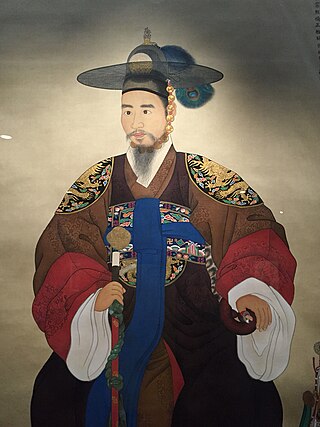
Cheoljong, personal name Yi Won-beom, later Yi Byeon, was the 25th monarch of the Joseon dynasty of Korea. After King Heonjong died without any descendants in 1849, Queen Sunwon chose Cheoljong, aged 19, to ascend to the throne, adopting him as the heir of her late husband, King Sunjo.
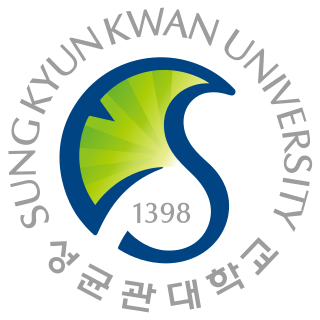
Sungkyunkwan University is a private research university with campuses in Seoul and Suwon, South Korea.

Yi Kang, Prince Imperial Ui, also known as Prince Uihwa, was the second son of Emperor Gojong of Korea and his concubine, Lady Jang, who was a court lady-in-waiting.

Shin Chae-ho, or Sin Chaeho, was a Korean independence activist, historian, anarchist, nationalist, and a founder of Korean nationalist historiography. He is held in high esteem in both North and South Korea.

Anarchism in Korea dates back to the Korean independence movement in Korea under Japanese rule (1910-1945). Korean anarchists federated across their end of the continent, including forming groups on the Japanese mainland and in Manchuria, but their efforts were perforated by regional and world wars.
Anarchism in Japan began to emerge in the late 19th and early 20th centuries, as Western anarchist literature began to be translated into Japanese. It existed throughout the 20th century in various forms, despite repression by the state that became particularly harsh during the two world wars, and it reached its height in the 1920s with organisations such as Kokuren and Zenkoku Jiren.
Pak Yol was a Korean anarchist and independence activist who was convicted of high treason in Japan for conspiring to attack the Imperial House of Japan and assassinate Emperor Hirohito. His name is also spelled Bak Yeol, and he is also sometimes known by his birth name Pak Jun-sik. Park was sentenced to death in March 1926, albeit his sentence was commuted to life in prison the following month. He was released from prison by U.S. military occupation authorities in October, following the end of World War II.

Jang Yeong-sil (Korean: 장영실) is a 2016 South Korean historical drama television series starring Song Il-kook, Kim Yeong-cheol, Kim Sang-kyung and Park Sun-young. It replaced The Jingbirok: A Memoir of Imjin War and aired on KBS1 from January 2, 2016 to March 26, 2016 on Saturdays and Sundays at 21:40 (KST) for 24 episodes.

The Master of Revenge is a 2016 South Korean television series starring Chun Jung-myung, Jo Jae-hyun, Jeong Yoo-mi, Lee Sang-yeob and Gong Seung-yeon. It aired on KBS2 from April 27, 2016 to June 30, 2016 on Wednesdays and Thursdays at 21:55 for 20 episodes, replacing Descendants of the Sun.
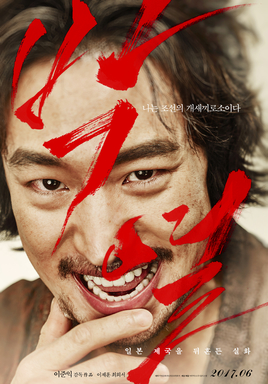
Anarchist from Colony is a 2017 South Korean biographical period drama film directed by Lee Joon-ik about the life of independence activist Park Yeol, with Lee Je-hoon taking on the title role. It premiered in South Korea on June 28, 2017.

The Korean People's Association in Manchuria was a self-governing autonomous prefecture in Manchuria, populated by two million Korean refugees. Following the Japanese occupation of Korea, many Korean anarchists had fled over the border into Manchuria, where they began organising a network of mutual aid for displaced Koreans in the region. Together with some Korean nationalists, they established the KPAM in order to provide food, education and self-defence to its members. Before long, the association found itself under attack by both Korean communists and Japanese imperialists, who assassinated their leadership. The Japanese invasion of Manchuria put an end to the anarchist experiment, with many of its members fleeing to China in order to fight against the Japanese Empire.
Princess Uisun was a Joseon Royal Family member who became the adopted daughter of Hyojong of Joseon and Queen Inseon, so she could marry the Aisin Gioro prince Dorgon and later, prince Bolo.
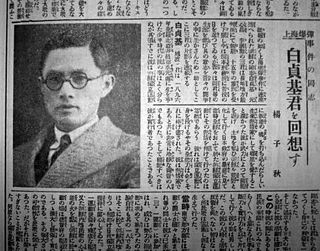
Baek Jeong-gi was a Korean anarchist and independence activist. A participant in the March 1st Movement, he was attracted to socialism and anarchism while he was a student in Japan, going on to join the Korean anarchist movement after moving to China. There he plotted the assassination of a Japanese consul, but he was arrested before he could make the attempt and died in a Japanese prison.
Anarchism in Taiwan first developed out of the anti-imperialist resistance to the Empire of Japan, when a number of young Taiwanese nationalists were exposed to anarchism during their studies abroad. Influenced by the anarchist movements in China and Japan, and in close cooperation with a number of Korean anarchists, the Taiwanese anarchist movement reached its height during the 1920s, before being suppressed by 1931.
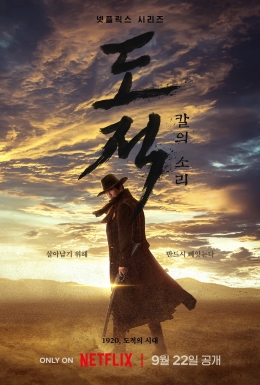
Song of the Bandits is a 2023 South Korean streaming television series directed by Hwang Jun-hyeok, written by Han Jeong-hoon, and starring Kim Nam-gil, Seohyun, Yoo Jae-myung, Lee Hyun-wook, and Lee Ho-jung. It was released on Netflix on September 22, 2023.
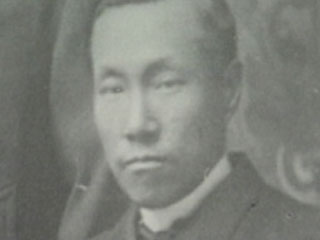
O Se-chang, art name Wichang, was a Korean politician, politician, writer, calligrapher-painter, and independent activist who was active throughout the late Joseon period, Korean Empire period, and the colonial period.
The following is a family tree of Korean monarchs.
References
- 1 2 3 4 5 6 Hwang, Dongyoun (2016). Anarchism in Korea. State University of New York Press. ISBN 9781438461694. OCLC 959978940.
- ↑ 황 (Hwang), 동연 (Dongyoun) (2010). "이정규, 초국가주의적 한국 아나키즘의 실현을 위하여" [Yi, Jeonggyu: For a Realization of Transnational Korean Anarchism]. 역사비평 (in Korean). 93 (겨울호): 198–230. Archived from the original on January 1, 2022. Retrieved January 1, 2022.
- 1 2 3 4 5 6 7 김 (Kim), 주엽 (Juyeop) (May 2, 2019). "[독립운동과 인천·(11)]'이을규·정규' 형제". 경인일보. Archived from the original on January 1, 2022. Retrieved January 1, 2022.
- 1 2 3 4 5 6 7 8 9 "재중 아나키스트의 국제 연대" [International Solidarity of the Anarchists in China]. 동북아역사넷 (northeast asian history foundation). Archived from the original on January 1, 2022. Retrieved January 1, 2022.
- 1 2 3 4 5 6 7 Hwang 2016, p. 24.
- 1 2 3 4 5 김 (Kim), 명섭 (Myeongseop) (May 24, 2016). "역사고백 <47> 이을규·정규 형제". 단대신문 (Dankook University Newspaper). Archived from the original on January 2, 2022. Retrieved January 2, 2022.
- 1 2 김, 정현 (December 24, 2019). 중국 내 한중 항일연대의 역사와 현장 (in Korean). 동북아역사재단. p. 1928. ISBN 978-8961878142.
- ↑ "[법조야사] 대동단(大同團) 총재 김가진(金嘉鎭, 前판사)과 대동단 사건". 법조신문 (The Korean Legal News). January 17, 2002. Archived from the original on January 2, 2022. Retrieved January 2, 2022.
- ↑ "대동단 출범 계기로 황족·귀족도 독립운동 가세". JoongAng Ilbo (The JoongAng). January 1, 2012. Archived from the original on January 2, 2022. Retrieved January 2, 2022.
- ↑ "독립유공자 공훈록 이을규(李乙奎)". 공훈전자사료관 By Ministry of Patriots & Veterans Affairs. Archived from the original on January 2, 2022. Retrieved January 2, 2022.
- ↑ 이, 문창 (2008). 해방 공간 의 아나키스트 (in Korean). 이학사. ISBN 978-89-6147-118-3. Archived from the original on May 22, 2022. Retrieved May 18, 2022.
- 1 2 Hwang 2016, p. 26.
- ↑ 주 (Joo), 인석 (In Suck). "우당 이회영과 단재 신채호의 아나키스트 활동 : 항일구국투쟁의 동행" [Lee Hoe-young and Shin Chae-ho’s Anarchist Activities - Companions of Anti-Japanese Struggles to Save Korea -]. 민족사상. 2021, vol.15, no.3: 165–211 (47 pages). Archived from the original on February 6, 2022. Retrieved February 6, 2022– via 한국학술지인용색인 (Korea Citation Index).
- 1 2 "재중국조선무정부주의자연맹 (在中國朝鮮無政府主義者聯盟)". Encyclopedia of Korean Culture . Archived from the original on January 14, 2022. Retrieved January 15, 2022.
- ↑ "재중국 조선 무정부주의자 연맹 (在中國朝鮮無政府主義者聯盟)". National Institute of Korean History (NATIONAL INSTITUTE OF KOREAN HISTORY). Archived from the original on January 24, 2022. Retrieved January 24, 2022.
- ↑ Hwang 2016, pp. 24–25.
- ↑ "국제연대와 평화의 언어, 에스페란토" [The language of international solidarity and peace, Esperanto]. 동북아역사넷 (northeast asian history foundation). Archived from the original on January 2, 2022. Retrieved February 6, 2022.
- 1 2 3 Hwang 2016, p. 25.
- 1 2 3 "이상촌(理想村)" [an ideal farming village]. Encyclopedia of Korean Culture . Archived from the original on April 14, 2022. Retrieved April 15, 2022.
- 1 2 "Opinion : 김종진, 김좌진과 함께 북만주에 '이상촌' 추진". JoongAng Ilbo 중앙선데이 (The JoongAng). August 12, 2012. Archived from the original on April 14, 2022. Retrieved April 15, 2022.
- ↑ Hwang 2016, pp. 25–26.
- ↑ Hwang 2016, p. 36.
- ↑ Hwang 2016, p. 37.
- 1 2 조 (Cho), 세현 (Sehyeon). "동아시아 아나키스트의 국제 교류와 연대 (International Exchange and Solidarity of East Asian Anarchists)". 아나키스트 도서관 (anarchist library). Archived from the original on February 21, 2022. Retrieved April 19, 2022.
- ↑ 김, 정현 (2019). 중국 내 한중 항일연대의 역사와 현장. 동북아역사재단. p. 1932. ISBN 978-8961878142.
- ↑ 안, 철홍 (May 1, 2003). "근근히 명맥만 이었다". Sisa Journal . Archived from the original on January 23, 2022. Retrieved January 23, 2022.
- ↑ "(사)국민문화연구소". Ministry of Culture, Sports and Tourism . Archived from the original on January 14, 2022. Retrieved January 15, 2022.